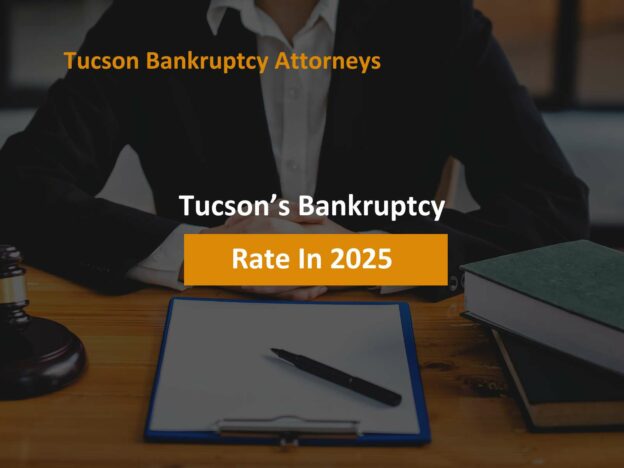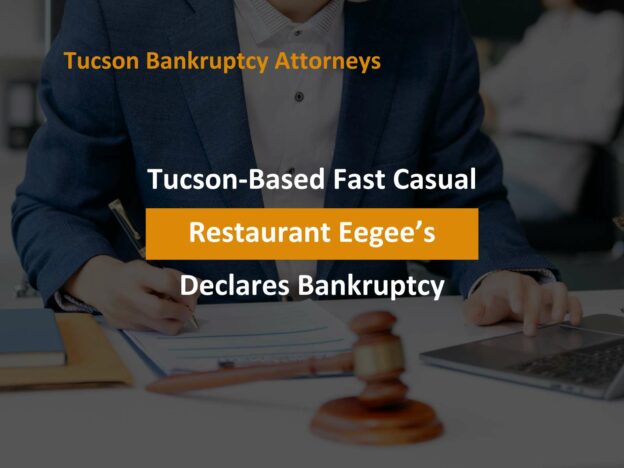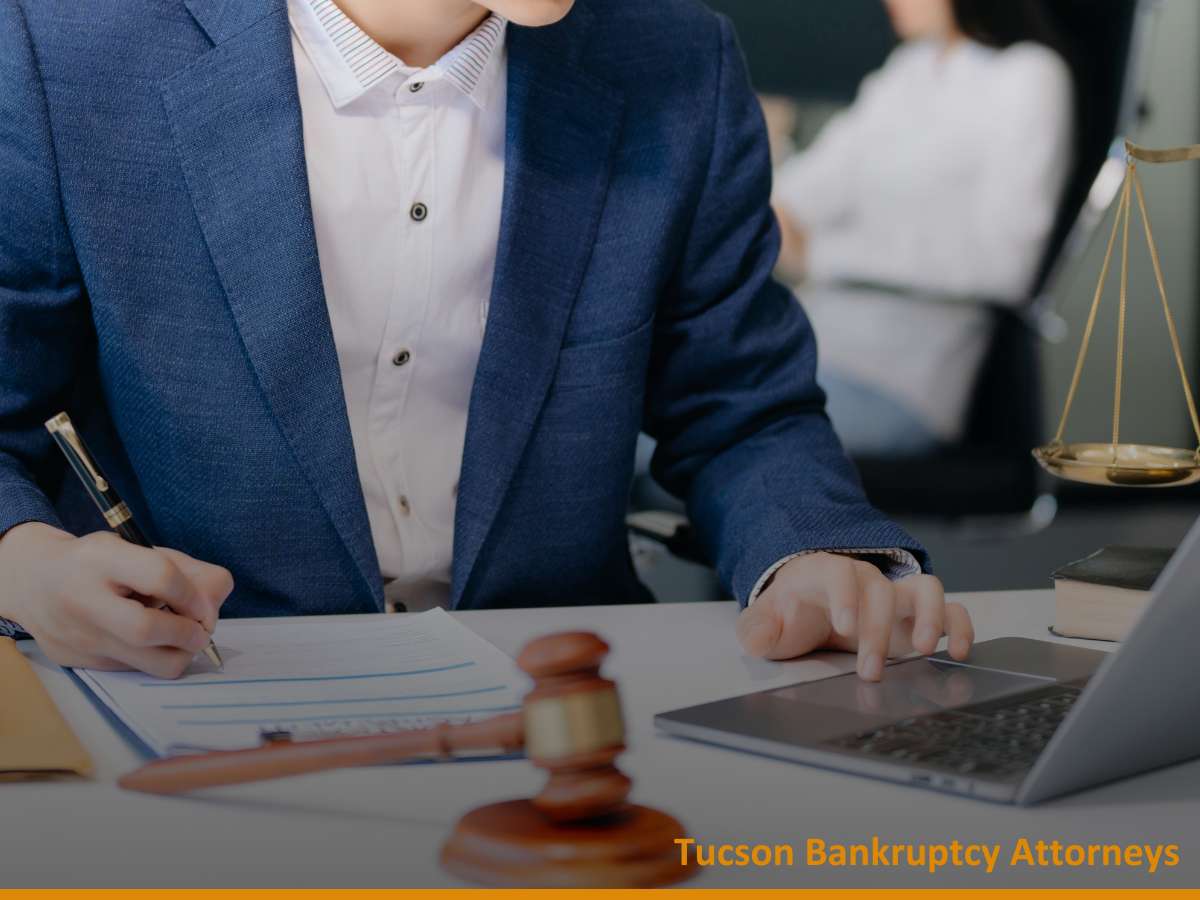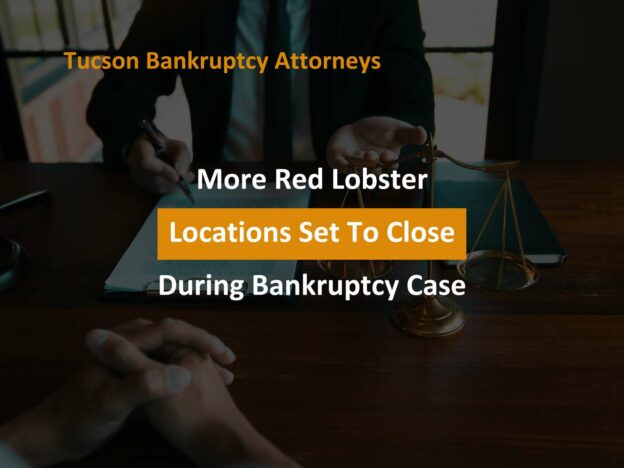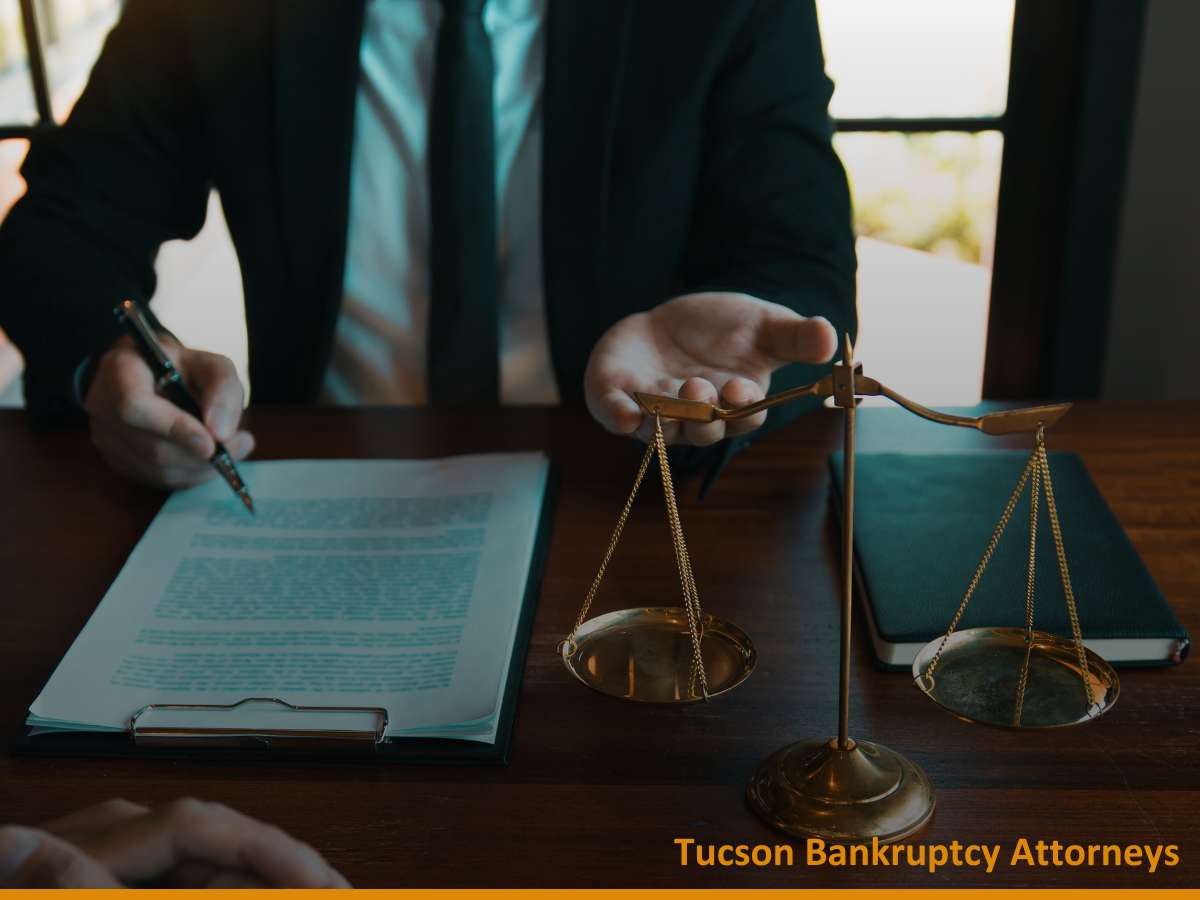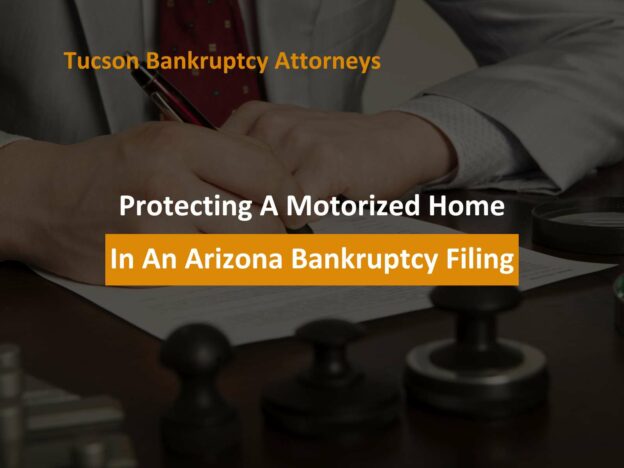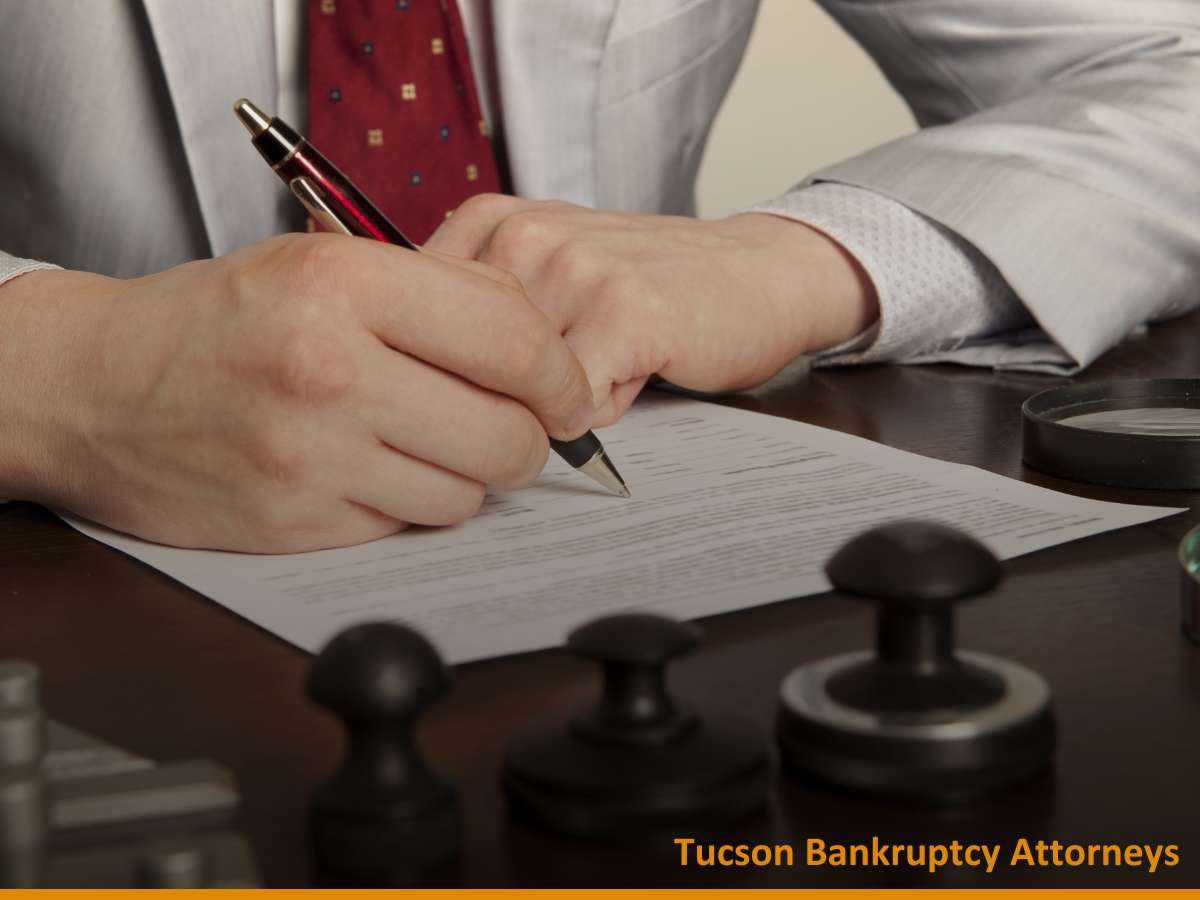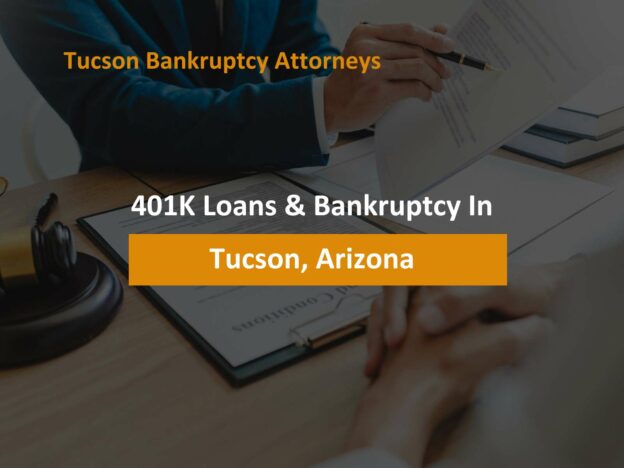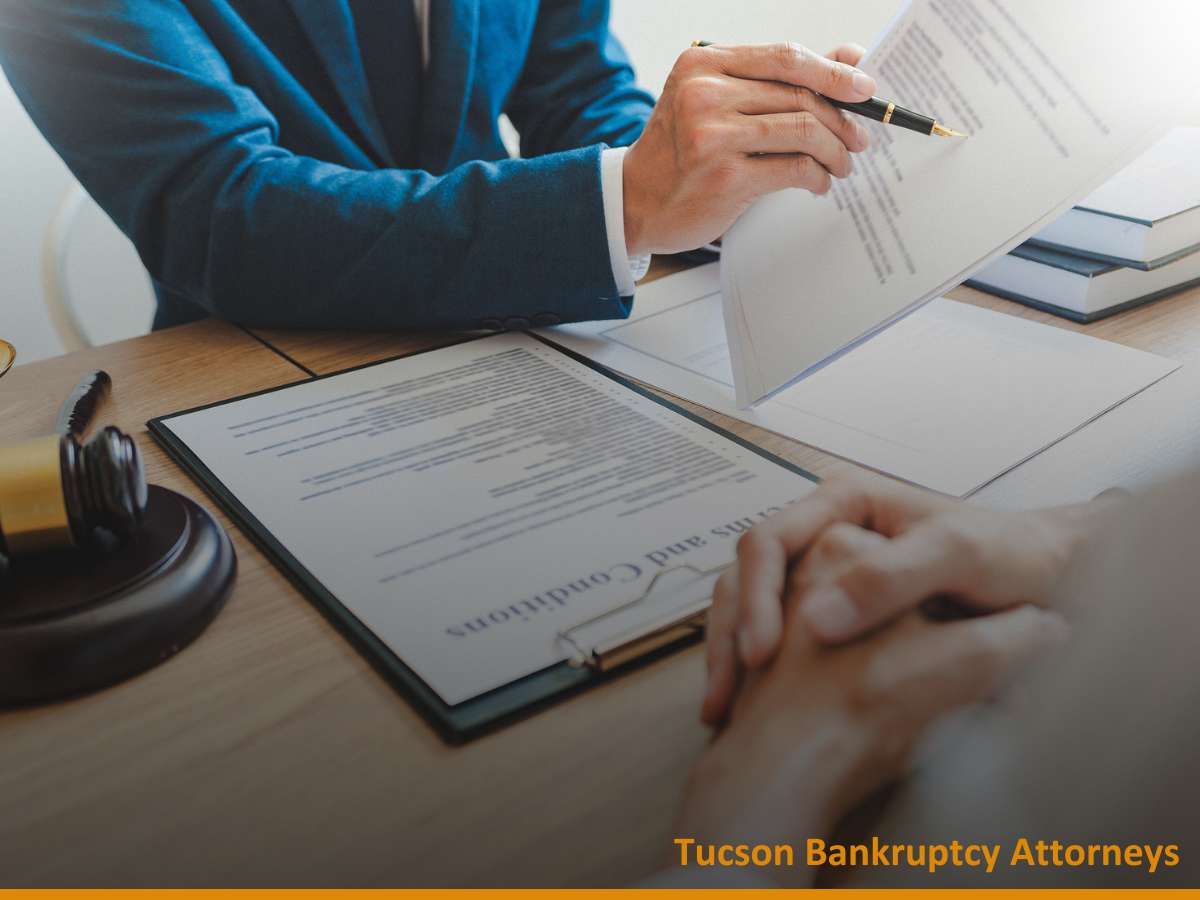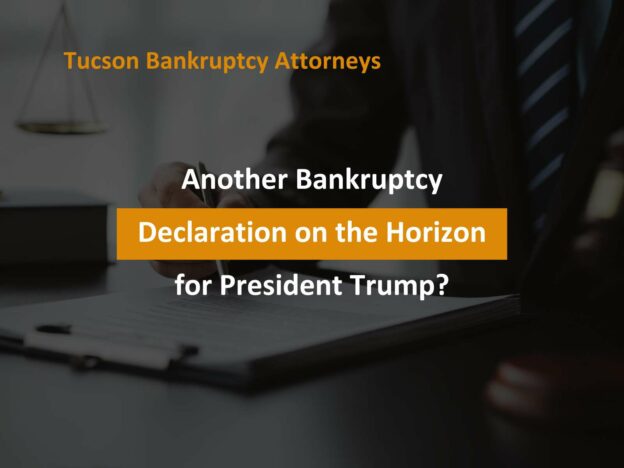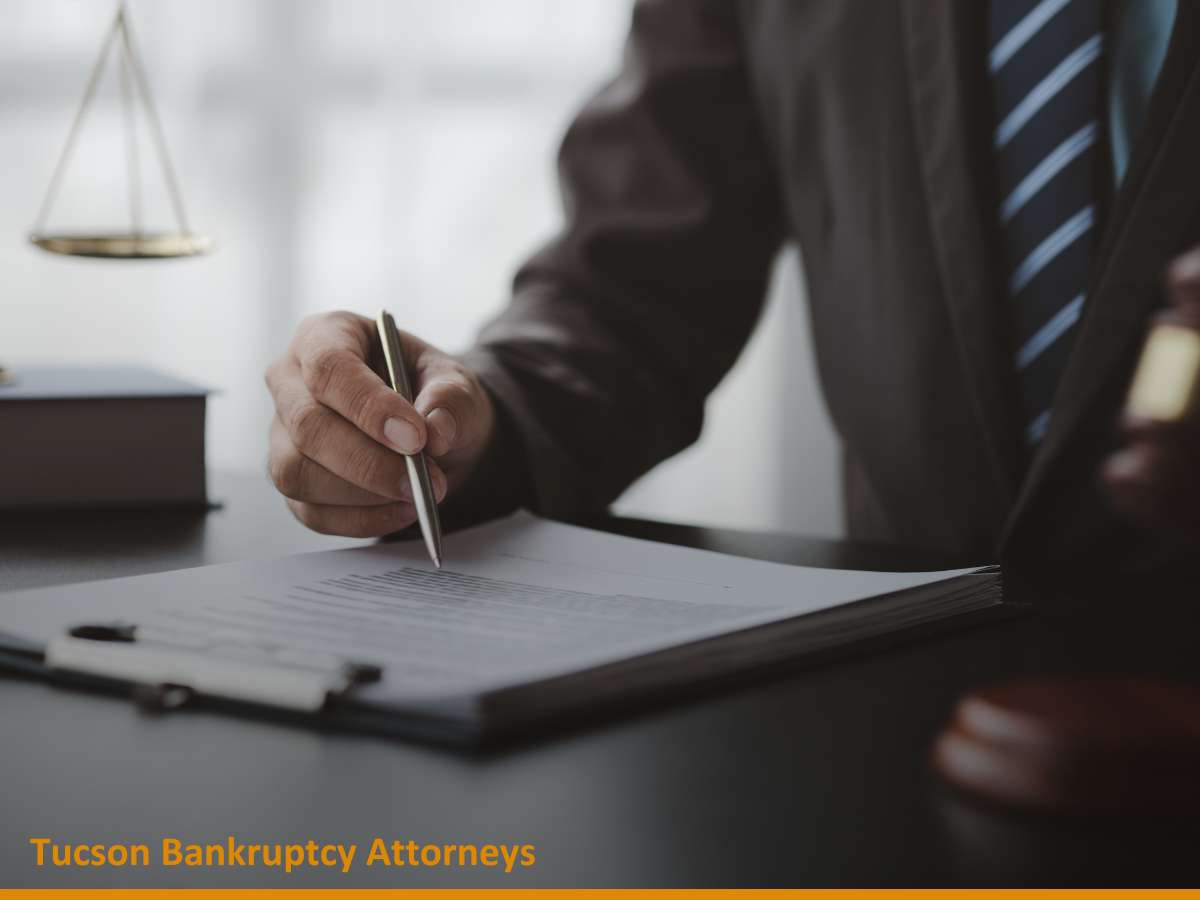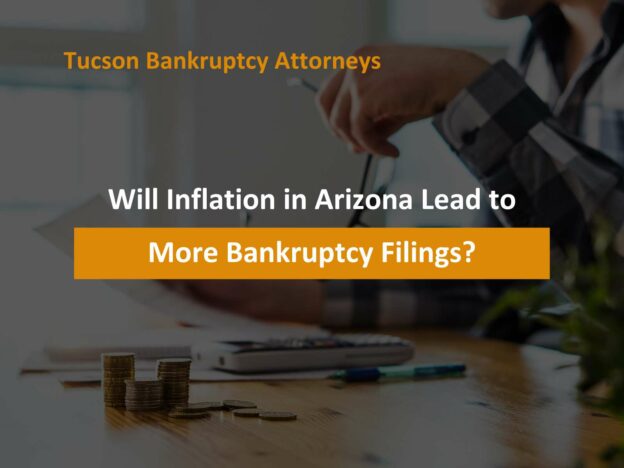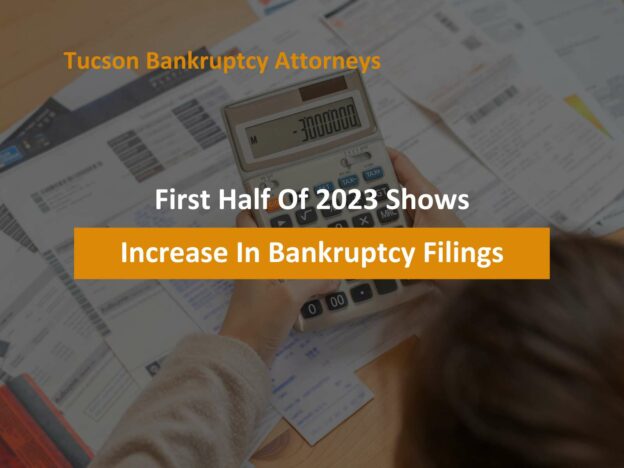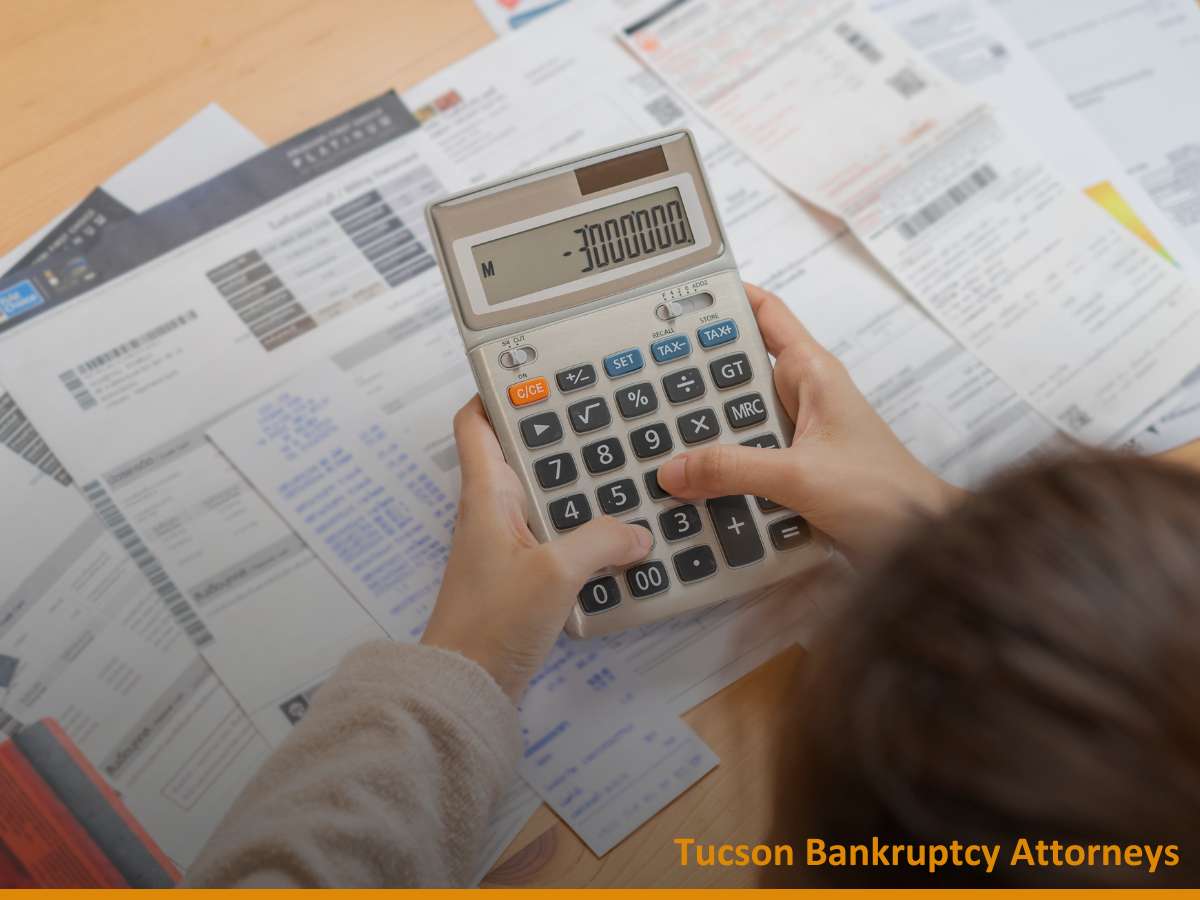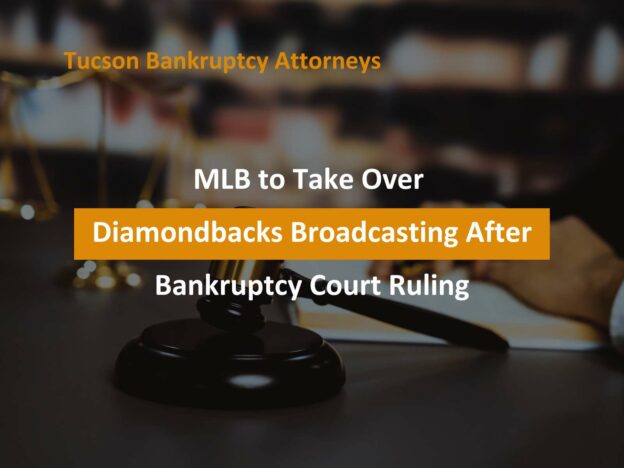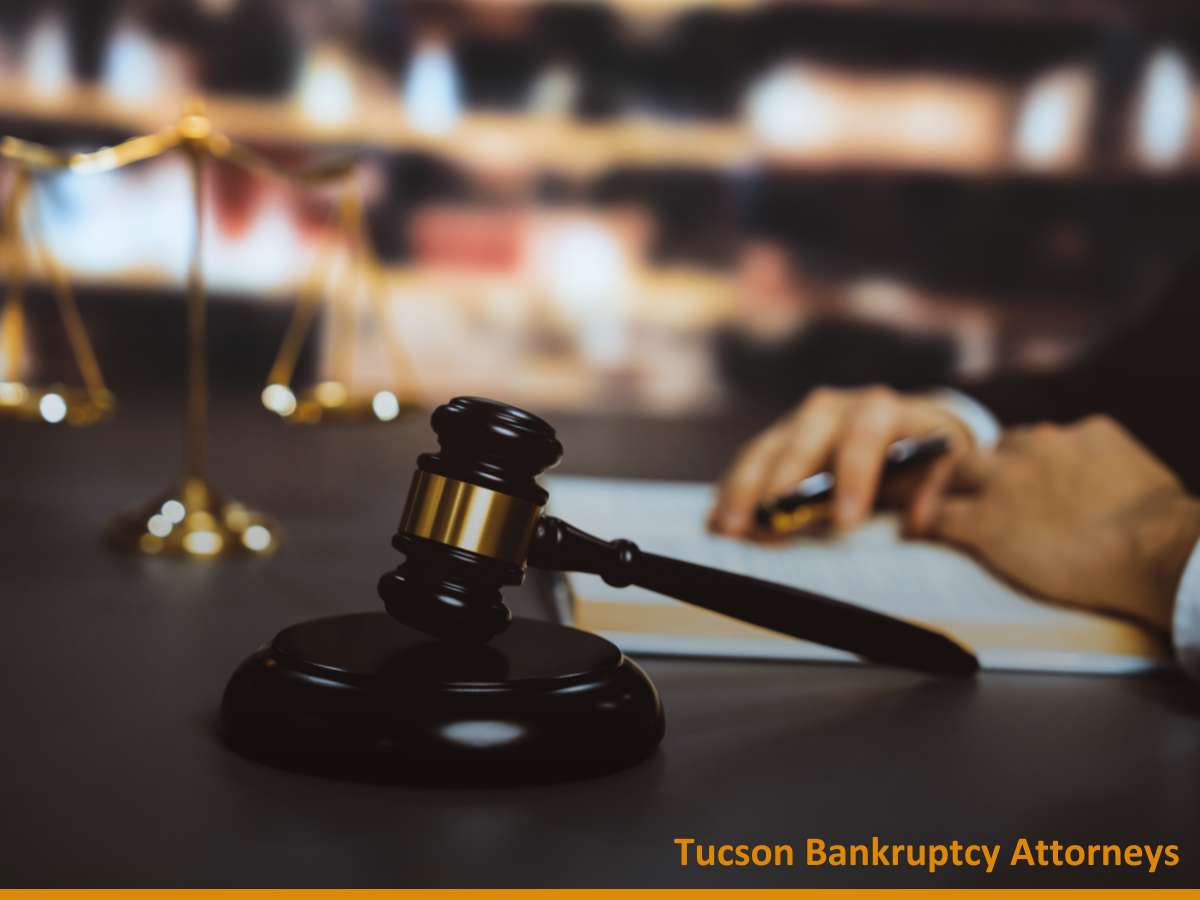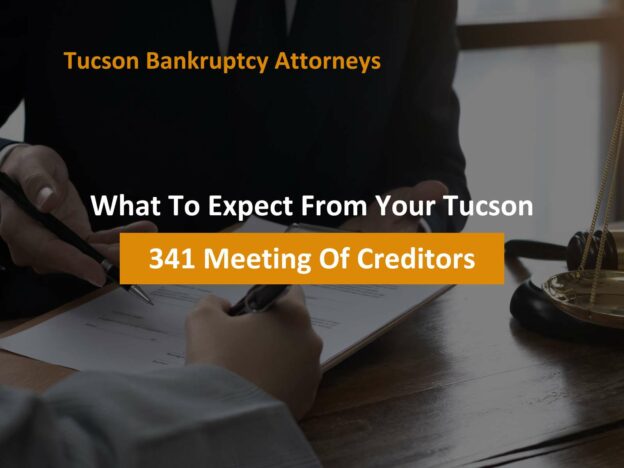When a new year rolls around, it gives us an opportunity to look back at the previous year and compare it to years before that. For those interested in the economy, there are several factors that can be analyzed. If someone wants to know if people in a certain area are struggling with finances and debts, they might want to look at the bankruptcy rate. The bankruptcy rate tends to coincide with factors like defaults, foreclosures, and unemployment, all of which were relevant in 2025. So did this cause the bankruptcy rate to increase in Tucson and across the United States? Read on for more information about changes to Tucson’s bankruptcy rate in 2025. If you think 2026 may be the year in which you declare bankruptcy, start learning more about the process now. Schedule your free consultation with our Tucson bankruptcy firm today by calling (520) 307-0020.
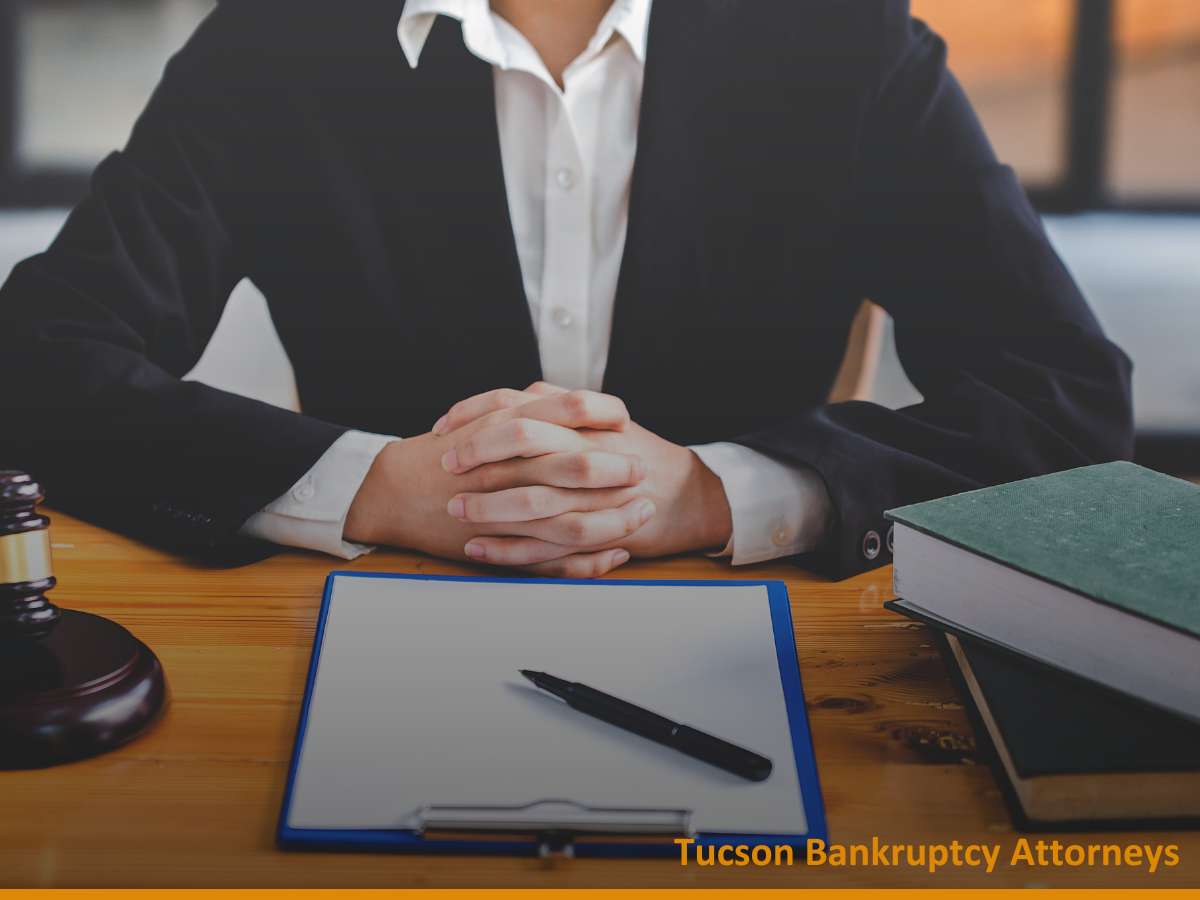
Types Of Bankruptcy Filings
Most bankruptcy cases filed are chapter 7 cases, but there are several chapters of bankruptcy available for different debtors and their unique situations. Chapter 7 is a liquidation bankruptcy filed by both consumers and companies going out of business. It is so popular among debtors because it wipes out unsecured debts in just several months. This can be highly beneficial for a household struggling with medical bills, personal loans, and other unsecured liabilities, but less useful for those who need assistance with secured and priority debts. This is where chapter 13 bankruptcy comes in. It is also used by debtors with too high of household income to qualify for chapter 7 bankruptcy, as well as those who have assets that could be at risk in a chapter 7 bankruptcy case.
Chapter 13 bankruptcy takes debts and makes them into a payment plan lasting 3 or 5 years. Secured and priority debts are paid in full, but unsecured debts are only paid off as much as the debtor can afford during their payment plan. Because of this, chapter 13 bankruptcy is typically associated with debtors in higher-income households. Both chapter 7 and chapter 13 bankruptcy require that debtors complete two online education courses and attend a hearing known as the 341 Meeting of Creditors, but chapter 13 debtors must also attend a plan confirmation hearing. Chapter 11 bankruptcy allows businesses (and individuals, in rare instances) to restructure with input from a committee of their top creditors. This could involve financing, downsizing or expanding, creating a new business model, changing leadership, and other corporate strategies. Small businesses may be eligible to bypass the creditor committee to reorganize their debts. This allows them to cut down how much the bankruptcy filing costs and how long it takes to discharge.
Tucson’s 2025 Bankruptcy Rate
Bankruptcy filings increased fairly consistently among all jurisdictions in the United States in 2025. Tucson was no exception to this trend, although our bankruptcy rate didn’t increase as steeply as Arizona’s as a whole. Filings increased by 11.9%, or from 2,904 in 2024 to 3,249 in 2025. Most of these filings- 2,668 of them- were chapter 7 cases, which is a 13.3% increase from the previous year. Chapter 11 filings were up 30.8% (although there were only 17 cases total), and chapter 13 filings rose by 5%. Statewide, the general bankruptcy rate increased by 13.7%, with chapter 7 and chapter 11 filings up 15.2%, and chapter 13 cases up 7%. This is the third year in a row in which there has been a rise in bankruptcy filings.
How Did The National Bankruptcy Rate Change In 2025?
Tucson’s bankruptcy rate changes weren’t far out of line with those of the rest of the state in 2025. Can the same be said for the rest of the country? Filings were up 11.9% in Tucson, but 11% nationally- a negligible difference. There were 565,759 cases filed in 2025, up from 508,953 in 2024 but down from 757,816 cases in 2019. Tucson filings accounted for about half of one percent of the national bankruptcy rate. National consumer filings were up 12%, with chapter 7 filings increasing by 15%, compared to 13.3% in Tucson. Chapter 13 filings were up 6% nationally, slightly more than the 5% increase experienced in Tucson. Commercial filings were up 5%- 1% for chapter 11 in general, and 11% for small business chapter 11 cases. As most of the chapter 11 cases filed in Tucson likely qualify for small business provisions, this isn’t far off from the 15.2% increase in Tucson for 2025.
Filing For Bankruptcy In Tucson, Arizona
There is no indication that the economic pressures that caused the bankruptcy rate to increase in 2025 will stop or slow down in 2026. Rising insurance premiums, student loan payments, inflation, high interest rates, and other factors may cause you to incur debts in the new year, or aggravate a preexisting debt situation. If you believe bankruptcy is likely in 2026, you should educate yourself about the bankruptcy process well in advance of your filing.
One of the first and most important steps of the bankruptcy process is applying the correct calculation to show income eligibility. Chapter 7 bankruptcy requires household income to fall below a certain threshold, and chapter 13 bankruptcy requires household income be high enough to pay off certain debts. Chapter 7 debtors can show they qualify by comparing their household income to the state median household income, or by showing they have insufficient income to pay their debts with the means test. The means test is also used to show if a debtor has enough income to complete a chapter 13 payment plan, and how much their payments should be.
After figuring out the correct chapter of bankruptcy to file, the debtor should begin assembling their documents, drafting their petition, and completing their first debtor education course. The debtor should also create a creditor mailing matrix so their creditors can be notified of the bankruptcy filings and other case updates. From here on, the automatic stay protects the debtor from creditors until discharge or dismissal. After filing, a trustee will be assigned to oversee the case, and typically requests supporting documentation from the debtor. This can continue until the 341 Meeting of Creditors, when the trustee verifies the debtor’s identity and delves further into the case. Debtors must complete a second education course within 60 days of this hearing. After filing the completion certificate, chapter 7 debtors wait for discharge. Chapter 13 debtors must continue and complete their payment plans to achieve discharge.
Start Your Bankruptcy Journey With Tucson’s Choice For Affordable & Reliable Legal Representation
Bankruptcy filings are on the rise, and you might want to join the ranks of those clearing debts and setting the course for their futures through bankruptcy. Bankruptcy is a daunting legal procedure, which is why there are professionals who specialize in this form of debt relief. But many people will eschew legal representation and file for bankruptcy on their own because they assume they can’t afford attorney’s fees. Our Tucson bankruptcy team offers competitive payment plan options so you can file now and pay later. Learn more about your options by scheduling your free consultation today at (520) 307-0020.

